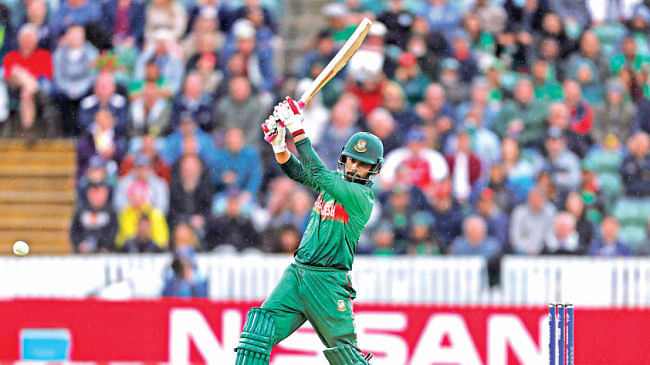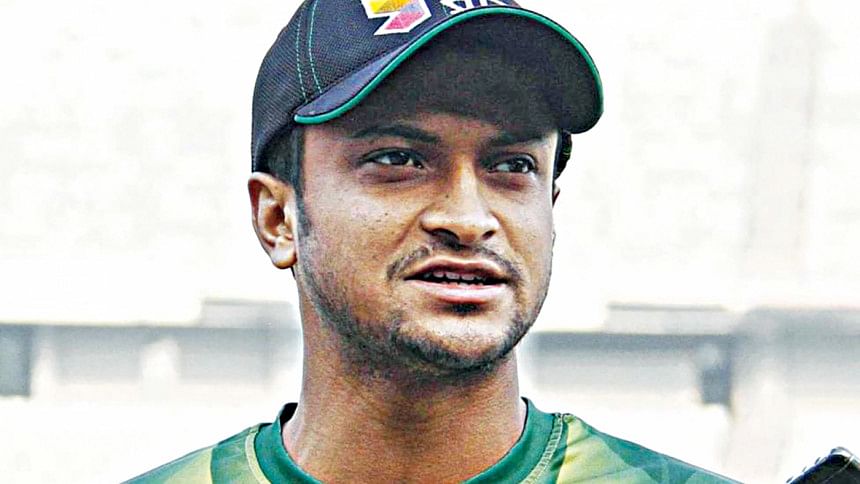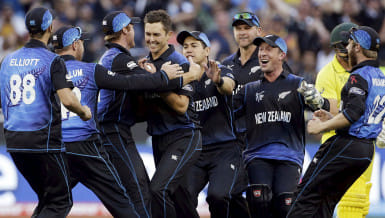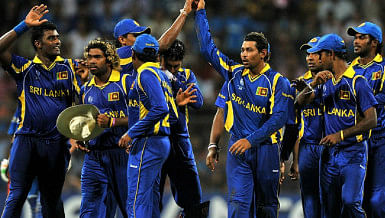One of the recurring themes of Bangladesh's World Cup campaign has been the disappointing performance of the one batsman most fans would have been looking at to set the biggest stage alight for the Tigers. Tamim Iqbal averaged 57.06 between the 2015 and 2019 World Cups, but on the biggest stage, he managed 235 runs at an average of 29.37 from eight games. A player who takes great pride in performance and the legacy he will leave behind in Bangladesh cricket, the meagre returns frustrated Tamim throughout the event, even though it was his most successful World Cup in terms of runs scored. Yesterday, as the Tigers prepared to make their way back from the UK, Tamim spoke to The Daily Star's Sakeb Subhan about his disappointment and the need to move past it. The following are excerpts of the interview:
The Daily Star (TDS): Are you disappointed with your performance in the World Cup?
Tamim Iqbal (TI): Yes, very disappointed. In the sense that, after what happened in 2015, I have been preparing myself for 2019. In these four years I've had a lot of success. And then, even in Ireland I did really well. But I think that as soon as the World Cup started, I took a lot of pressure on myself. Just thinking that I don't go back to 2015 again. It is very easy for anyone who reads this to come and ask me why are you thinking like this, you have scored so many runs. But only I know what is going on inside. My nightmare was going back to 2015, what happened in 2015, how I suffered and my family suffered.
TDS: By that you mean the outside pressure after you dropped a catch against England and also some inconsistency with the bat?
TI: The outburst that happened was very new for me then. I couldn't handle it at that time. And then how the family suffered, and all of that. I knew very well that the World Cup is a tournament that makes even those who do not follow cricket start following; that's how big the event is. I think that is what killed me at the beginning. I took a lot of pressure on myself; I wanted to prove a point… not prove a point, I wanted to do really well.
And in these four years, the success I got, I never tried to prove to anyone. I just went there, batted and things happened. But here, I put so much pressure on myself to succeed that it hampered me. I was actually looking to get a score in the first two games. That's very important for me. The 62 I scored [against Australia], if I could have scored that in the first two games, it could have been a different thing mentally. I think that is why I find it disappointing. The trolling, the criticism is part of my life. I need to accept it. I think that I have dealt with it much better than I did in 2015. What bothered me was myself. I lost to myself.
TDS: What bothered you more, that you couldn't score runs or the pressure you put on yourself?
TI: I took a lot of pressure to score runs. I had to score… I had to score. If you try too hard to do something, it doesn't happen. I really am not someone who has a bad tournament and will then come and give excuses, but actually I was very unlucky in this tournament. There were three to four dismissals where I couldn't do anything. The Cottrell runout, the three chop-ons. It had nothing to do with my technique. There were one or two dismissals which I regret… England and New Zealand. The first game [against South Africa] was a very good delivery, the last game [against Pakistan] was a good delivery. Surprisingly, though I didn't score runs, I actually batted really well. It wasn't as if I was being beaten or struggling. Whenever I batted, everybody thought – myself included – that this is the day probably. I went there and played a couple of nice shots and then it just happened. The good thing is I don't take the past innings with me when I am batting. I started panicking more because I was getting out after one mistake. I actually lost patience with myself. I wondered what the hell is happening. I talked to Neil and he said you cannot do anything. After the first two games I went to [batting coach] Neil [McKenzie] and said 'let's shoot my batting and see if there is anything technical'. Then he told me 'I wish I could tell you something', there was nothing. He said 'it's basically the same, you've done this'.
There are two positives from this. One was the processes that got me success, the way I batted and the processes I did before the game, I did exactly the same. In such situations, there will be people giving you all kind of advice: 'Go and attack', 'if this is not working you should bat like this or that'. That is the worst possible thing I could have done. Because after not scoring in two matches, if I went down the wicket to the first ball, or swung my bat around and then got out, then that would have the worst possible thing. The best thing I did was I never changed. I batted exactly the same way when I scored a lot runs and when I didn't score a lot runs – from game 1 to game 8 – I batted the same way.
TDS: When you say the same way, do you mean the changed Tamim who aims to bat till the 40th over?
TI: The aim is to bat deep. Sometimes, with the way I start… I will take time when I start the innings. When I am batting on 40 or 50, I make up the time I took. I have a lot of confidence in myself, the team, the coaching staff have a lot of confidence in me. It's not like I have done it for 10 games; I have done it for 50 games. Unfortunately I never got to that stage in this World Cup. People will say that there are a lot of ifs and buts, but it does not bother me because I know what I was trying to do. The other positive is that in my bad times, if I am averaging 30, I am pretty happy.
TDS: A lot of criticism has come because of your changed role, from swashbuckler to someone who bats all the way through.
TI: My role also has changed and, though it is a World Cup, I batted exactly the same way for the last five years. The way I batted actually helped the team to win. It doesn't bother me what people think. Changing myself because some people think a certain way is the worst possible thing I could do. What I do is not easy. My point is, if something has worked for me for a number of years, why should I change it? The people who understand cricket will understand what I went through and the people who don't understand cricket, will always criticise. And I am completely fine with it; I think I have come out of that space in 2015. There were high expectations, for me too, because I took myself to that level. It hurts a lot, but I need to come out of it.
TDS: You say that you have lost to yourself but also that the frustrations did not hamper you in the middle. Where did it affect you?
TI: It didn't affect me when I was batting. It affected me before the game – two days before the game. When playing a match, what you're doing in the middle is important but there are other important things. How mentally relaxed you are a day before, how positively you are thinking, all this adds to your batting. If you are not in a good mental space when you are going out to bat, it sometimes definitely hurts you and definitely affects your game. I took a lot of pressure to perform. It was not about social media or people writing about me, it was me who was the problem.
TDS: Did the dropped catch of Rohit Sharma add to the pressure?
TI: The catch drop didn't bother me either. I dropped the catch and felt bad for a couple of overs and I was up and running in two overs' time. I was going into the hot position to field. I was cheering when wickets were falling. I was probably the first one to go to Mustafizur when he took five wickets. Dropped catches are part of cricket. It was an important catch, I understand. A lot of criticism came after the dropped catch. Going forward, I will be taking a lot of good catches and I will also be dropping catches.
TDS: With three wins out of eight matches, how would you rate Bangladesh's performance?
TI: I thought it was a disappointing performance. We definitely had our moments and our chances. I could answer that question by saying that it was a very positive tournament, we pushed the best teams to the limit, but I think that we as a team have come out of that position. Just playing well is not our target. Playing well and winning games is our target. If you think in that way, we are number seven. If South Africa win we become number eight. So you cannot say it was a great campaign.


 For all latest news, follow The Daily Star's Google News channel.
For all latest news, follow The Daily Star's Google News channel. 










Leave your comments